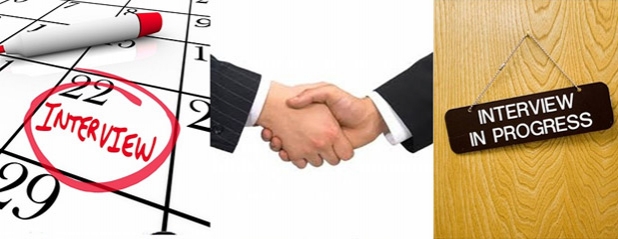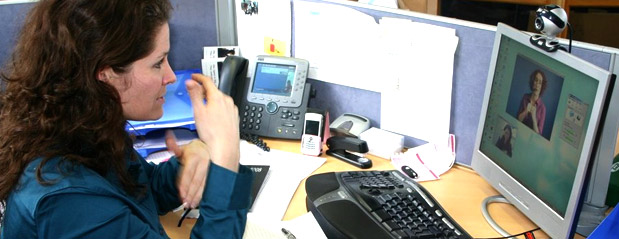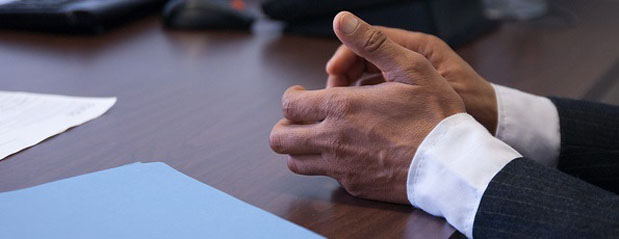Top Job Interview Tips for IT Roles

It's always important to head into a job interview prepared, ready and on-form. However, you never know what to expect so it's always smart to do some research and get some top job interview tips.
Preparing for a Job Interview
So you’ve just secured an IT job interview and are now anxiously awaiting your moment to shine. You've got the address, the time and detailed information about the company that you hope to be working for very soon. However, as interviews can be a somewhat daunting process it's understandable if you're worried about lacking the confidence or the drive to get through it.
Every job interview is different and the process can vary person to person. Some interviewers tend to have a more casual approach, with their leg perched on another, participating in more of a conversation with you than talking about the role itself whereas other interviews can be more of a strict process with three people of upper management staring at you with the highest of expectations.
No doubt any impending interview can instil a sense of anxiety with what may seem everything depending on this one hour to determine the next step in your career. You may already feel that you have the confidence and qualities to breeze through an interview but for some you might feel you’re unprepared and nervous with the very thought of a question sending you into a shaking, agitated mess. That's why Technojobs have put together some tips and advice to help get you prepared for the big Q&A.
1. Research, Research and more Research
Get on your computer and begin to research about what the company does, their history, current status and if possible the direction it’s heading in. You will likely be asked about the brand, with the typical question being, ‘So what do you know about this company?’ Have your answer ready; it doesn’t need to be long as a Wikipedia article but a brief history and a description of what the company does should suffice.
On the other hand, depending on the job role you’re going for you may need to provide a more in-depth answer. If you’re applying for upper management then your research will need to be more substantial with evidence of such factors like last year’s profits, a SWOT analysis of their current marketing strategy and their overall position in the market. It helps to gather as much information as possible related to the position you’re going for.
2. Review your CV and Job Specification
You should study the job specification in detail so you can easily reference a requirement and skill that they’re looking for and relate it back to your C.V with ease. You now have the opportunity to go into more detail about specific skills you possess and explain how it will benefit some of the requirements of the role which will show you’ve researched the role and can assure them you’re the best person to do it.
You also need to be ready to talk about your experience, qualifications and education if questioned on it. If you have any notable gaps in your C.V due to travelling or unemployment be ready to have an answer for that.
3. Practice Makes Perfect
You never know what your interviewer is going to ask but there are common questions asked in an interview. You can view the most common interview questions here and use it as a guide to practice the answers you’re going to give. It may happen that half of the answers you have prepared are never said but by practicing all the possibilities it can at least make you more prepared.
Apart from the most common interview questions, you will also be questioned on your skillset if it is relevant to the job. Be prepared to have your skills put to the test as you will likely be asked technical questions related to the role. We have many specialist interview questions available on our Interview Tips section so it might be worth looking at that to see if we have your skillset covered.
4. Appearance is Everything
First impressions are everything and the interviewer’s first impression of you will be your appearance. By dressing formally and looking smart you can already tick a few boxes before you even say anything. For hints and tips on how to dress appropriately please read our article on what to wear to a job interview.
Appearance doesn’t just mean the clothes you wear but it’s also your body language and facial expressions. Remember, you're never fully dressed without a smile!
5. Right Place, Right Time
You could be well prepared in the morning of your interview and leave the house at the right time but what if you can’t find the place or have no idea where to park? This can happen so make sure you not only review the location on a map but know exactly where to leave your car or where the best entrance is. If the office location is on the high street or a stand-alone building you should still double check with the person confirming the interview if there’s anything that should be known about finding the location. Some places can seem hidden even if you’re standing right next to it.
As for timing, you should always arrive 15 minutes before the interview is scheduled to start. Whilst waiting, use this time to go over your answers and review the job specification and your C.V just so you remain ready and prepared.
6. Be Positive, Honest and Confident
This may be easier said than done but by shaking the hand of your interviewer(s), making eye contact and always smiling you’re already making a good start. This could be your new boss so leave a good, lasting impression. In some scenarios you may even be led by them to the interview room so try to avoid the silence by being friendly, asking them how their day is going and just making general chit-chat. Do save any questions you have about the job/company for the interview and instead use this opportunity to express yourself as a friendly, approachable person.
As for the interview itself, be honest, positive and well spoken. You shouldn’t ever have to tell someone that you’re enthusiastic as this is a trait that the interviewer should notice just by talking to you. Be honest with your answers as it’s easy to be caught out. Be well spoken and clear and if you are being interviewed by more than one person be sure to make eye contact to each person when giving an answer so you’re not just concentrating on one person. Emphasise the skills, qualities and strengths that you possess and connect them with the requirements of the job role.
It might seem easy to tell someone to be confident but if you are well prepared and have done your research you will find the confidence will be there to help you succeed in your interview.
7. Listen and Ask Questions
Be attentive to everything you’re asked and told. With each question you’re asked, make sure you’ve paid close attention to the question so you’re not just giving an answer you’ve practiced but an answer that fits with the question best.
If you ask a question that the interviewer has already covered you might be seen as someone who doesn’t listen, so be sure to eliminate any questions as soon as you feel it’s already been covered. Asking questions is an important factor of any interview and it shows the interviewer that you have an interest and understanding of the company.
It’s recommended not to ask direct questions relating to salary, holidays etc or to ask the dreaded, ‘So what did you think?’ at the end on the interview. They will let you know what they thought either at the end of the interview or soon enough.
If you don’t have a job interview lined up but would like to begin the process of finding a new job then click the link below to get started with Technojobs and land that interview.




